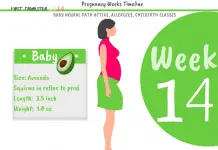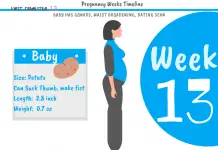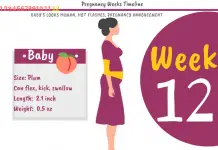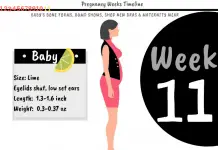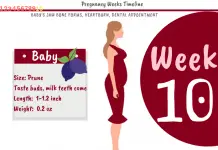For the world that only talks about pregnancy cravings, complaining about the loss of appetite during pregnancy may seem inconsequential. But it is not like what you just read.
Most women experience loss of appetite pregnancy because of pregnancy toxicosis. There is no other reason for the loss of appetite. You don’t need to worry about a loss of appetite during pregnancy.
Is loss of appetite a pregnancy symptom? Contrary to this, loss of appetite during early pregnancy is a consequence. While some pregnant women will chomp down ice cream with pickles, others will throw up at the sight of it.
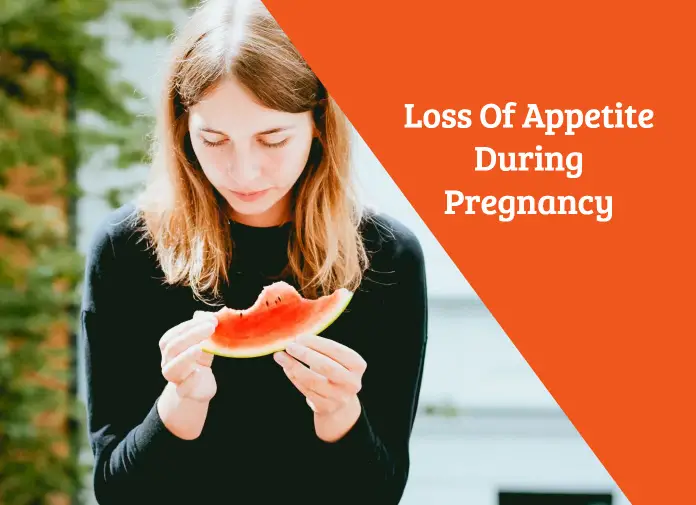
Is it normal to lose your appetite during early pregnancy?
There is no hard and fast rule that you would lose appetite during early pregnancy. At various stages of pregnancy, your cravings and hunger will fluctuate.
Generally, most women go through appetite loss during pregnancy in the first trimester. Later as the skyrocketing hormones settle at a certain level, desire to eat returns back.
A vague notion about the loss of appetite early pregnancy sign is that it helps protect the baby. How? By preventing you from eating junk! How far is that true or even true at all, is not known.
It is normal to experience appetite loss during pregnancy because of nausea and vomiting. Recall the last time when you have food poisoning or fever, and you did not feel like anything. Draw a parallel to the present scenario where your body is undergoing plenty of chemical changes. Once the phase of morning sickness subsides, you will feel like eating, and your diet will be more than before.
Can the loss of appetite be a sign of pregnancy?
An early sign of pregnancy is pregnancy toxicosis or nausea. Loss of appetite is not inevitable for every pregnant woman. Some may instead have an overdrive of appetite while pregnant.
If you are pregnant, there will be enough symptoms to detect it other than appetite loss.
Is loss of appetite a sign of pregnancy? Is not being hungry an early sign of pregnancy? The answer remains the same. A positive pregnancy test confirms your pregnancy. Rest all such changes in pregnancy are not constant or universal.
Loss of appetite during the first trimester
Your 8-week pregnant belly is the initial start of the showing of the baby bump. During the first trimester, the baby is of the size of small grain or seed.
The nutritional needs are not that would require you to overeat. Ideally, you must take your prenatal vitamins and an extra 300 calorie meal for a healthy pregnancy. Loss of appetite and nausea in early pregnancy don’t allow one to gain more than a few pounds.
Some women may feel so sick that they lose weight. Lest you are poorly nourishing yourself, appetite loss will not harm the pregnancy.
Loss of appetite during early pregnancy
Mainly the issue of appetite loss while pregnant is in the first trimester. Dysgeusia or a metallic taste distorts your sense of taste. Estrogen and hCG hormones soar at this time and increase the sensitivity of the nasal membrane. You may not like the smell of even your once-favorite food and end up passing it.
Ways to treat loss of appetite during pregnancy
1) Eat small meals at regular intervals
Loading yourself with food and then a long fasting period is the cause of nausea. Once you allow your body to be in fasting state acidity robs your appetite. Another factor is the breakdown of glucose stores in the body. When you don’t want at the time, you had to take your meal your body generates sugars, and you will stop feeling hungry.
2) Increase the intake of citrus fruits
Vitamin C rich fruits are tangy and loaded with antioxidants. They will cure nausea and refresh your senses. It is best to take vitamin C from natural sources such as lemons, oranges, and berries. Squeeze a fresh lime in a glass of orange juice and sip it to alleviate the loss of appetite and nausea.
3) Avoid oily foods
Meat, grills or fried stuff are heavy and difficult to digest. The longer a meal stays in your body, the less will you be hungry. Don’t consume a lot of sugars and instead take proteins.
4) Include fiber-rich food
Constipation is another reason for the loss of appetite in early pregnancy symptom. Taking a portion of fiber loaded food will ease bowel’s motion. When your gut is clean, you will have the urge to eat. Consuming yogurt or probiotic curd will further improve your condition.
5) Take your time to eat
Don’t be in a hurry to finish your meal or eat all of it at once. Eat during the intermittent span when your appetite revives and stop when you don’t feel like eating. Do not force yourself to finish a meal at any point in time.
6) Drink lots of fluids
Nausea can be alleviated by drinks such as ginger tea or lemonade help morning sickness. Hydrating yourself is crucial for a healthy pregnancy. Drinking about eight glasses of water a day will need to go up if you are often vomiting. The water lost takes along minerals which need to be replenished.
7) Vitamin B6 supplements
You can consider taking antihistamine and vitamin B6 supplements that cure a lack of appetite. Talk with your gynecologist about increasing the portion of vitamin B6 in your prenatal vitamins. Taking vitamin supplements will cover nutritional loopholes.
8) Don’t eat what you don’t like
Every nutrient has multiple sources. You can completely stop eating any particular food if you don’t feel like or have a problem after taking it. Opt for what you like and eat it happily.
9) Try small portions before serving
Don’t try anything new in large quantities. Everyone around is going to tell you of a secret recipe that gives your baby superpowers. Hear it all if you want to but don’t be your experiment. Always try a small bite and allow it to go in. Until you are sure that it won’t come back, don’t eat anything out of courtesy.
10) Opt for food with subtle aroma
Overpowering smells of food can make you reluctant. Don’t smell your food before eating. The chances are that you won’t like most aromas during pregnancy. Spicy food during pregnancy is another thing you can skip.
Loss of appetite during pregnancy second trimester
The honeymoon phase of pregnancy lets you bid farewell to morning sickness. Once you are over nausea and dizziness during pregnancy, you will feel like eating. An overall weight gain during pregnancy has to reach 30-35 pounds.
If you are still not over the appetite loss, then you can continue with your previous diet plan. But now you need to eat enough to supply calcium, folate and omega fatty acids to your baby. The second trimester is the time when the baby is growing, and all organs are in their completion stage. You must try vegetable salads with lemon zest.
Loss of appetite in pregnancy third trimester
Loss of appetite in the third trimester is common than in second trimester. Now your uterus pushes the intestines, but your energy demand will curb appetite loss.
Loss of appetite in late pregnancy can be because of constipation. You need to eat at least 350-450 calories more than what you regularly took. Women who still have not gained enough weight must pay a visit to their doctor or pregnancy dietician.
The chances of loss of appetite during pregnancy third trimester are becoming lesser. Drinking plenty of fluids and loading up on fiber-rich foods will relieve constipation. Appetite loss during late pregnancy is not as severe as early pregnancy.
What happens if a pregnant woman does not eat?
During early pregnancy, a woman can go for a few hours without eating as the demand of the fetus is negligible. A woman in her third trimester needs to eat to prevent complications such as preeclampsia or low blood pressure during pregnancy.
Loss of appetite pregnancy gender
Pregnancy and loss of appetite have many myths revolving around. Some say that if you have a taste for meat and fried food you have a baby boy. Loss of appetite while pregnant is attributed to a baby girl.
The reason is crafted as the counteracting action of her hormones with that of the mother. And just like it, another old wives tale says that a girl child leads to an excessive appetite for sour food.
Loss of appetite early pregnancy no morning sickness
There can be confusing symptoms like having no morning sickness but no hunger. Whatever it is, will be temporary and soon pass. If one does not have morning sickness and instead feels restless at night, the scientific basis remains the same.
Commonly, dizziness and loss of appetite during pregnancy are because of toxicosis. The degree of toxicosis may vary, but it is unlikely that a pregnant woman does not have it.
Loss of appetite after pregnancy is also possible because of the C section or until the time postpartum changes occur. Nausea and loss of appetite after pregnancy will be brief and will go on its own.
When to consult a doctor for loss of appetite during pregnancy?
You don’t gain weight in the first trimester. By the second trimester you should be putting on 1/2 pound a week.
If appetite loss isn’t letting you eat enough to maintain your current weight consult a dietician and OB.
Similarly, you need to see the doctor wine appetite loss is pushing you towards intoxication. If you have a history of depression or mental disorder, let your OB know about appetite loss. Relapse of such mental health issues causes sudden weight fluctuation and appetite loss.
When appetite loss is accompanied by Bulemia or eating disorder like signs immediately tell your doctor. These conditions can harm the baby at an early stage. Just few incidents pose a threat to fetus.
Other than that if you have bleeding gums, see blood clots in excreta, or have rectal pain consult a doctor. Repeated incidents of vomiting cause severe dehydration.
Loss of appetite can have secondary outcomes like stress and anxiety. During pregnancy such symptoms can not only affect the mother but harm the baby.

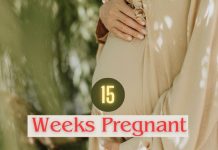
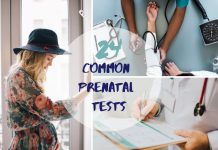
![First Trimester Of Pregnancy: Weeks 1 To 13 First Trimester [Week 1- Week 13 Overview]](https://www.pregnanteve.com/wp-content/uploads/2019/07/first-trimester-of-pregnancy-218x150.jpg)
